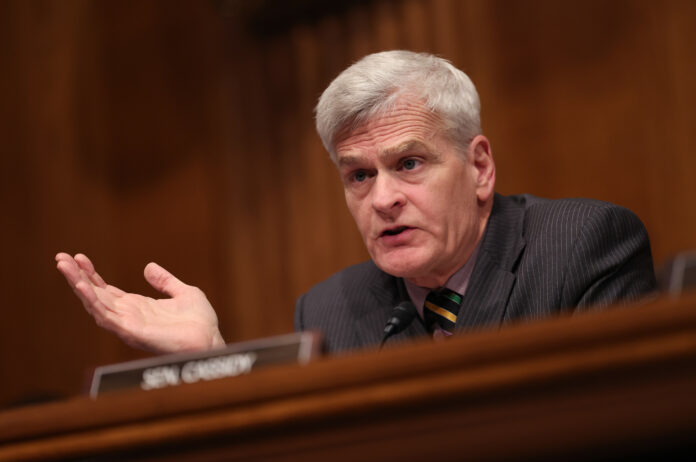Dual enrollees of Medicare and Medicaid could see big changes ahead as a bipartisan group of U.S. senators proposed a new law to integrate the two plans in a more seamless program.
Republicans Bill Cassidy of Louisiana, John Cornyn of Texas and Tim Scott of South Carolina, along with Democrats Tom Carper of Delaware, Mark Warner of Virginia and Bob Menendez of New Jersey, this week proposed the Delivering Unified Access to Lifesaving Services (DUALS) Act of 2024 in hopes of improving Medicare and Medicaid for dual eligibles.
“Patients dually eligible for Medicare and Medicaid have much worse outcomes than other groups even though there is a lot more money spent on their care,” Cassidy said in a statement. “Making Medicare and Medicaid better work together makes patients healthier and saves money for taxpayers.”
Carper said that beneficiaries who are dually eligible for Medicare and Medicaid tend to be some of the sickest and most vulnerable patients, and ending the complexity behind the health care programs is key in the bill.
Kevin Dietsch/Getty Images
“We’ve worked hard over the last three years to draft this legislation, and I’m proud to introduce the product of our years of work today,” Carper said.
Cornyn added that Medicare and Medicaid often don’t coordinate care for those enrolled in both programs, ultimately leading to poor outcomes for patients and inefficient spending for the health care system.
“By requiring states to develop an integrated health plan for these Americans, this legislation would help streamline the system, improve beneficiary experience, and ensure taxpayer dollars are spent responsibly,” Cornyn said.
If passed, the DUALS Act would require each state to develop a comprehensive and integrated health plan for dual-eligible beneficiaries. That could either be an entirely new system or an addition to existing coverage options.
“Many states lack fully integrated care between Medicare and Medicaid, leaving dually eligible individuals with fragmented care and the headaches of confusing bureaucracy. We can, and must, do better for this vulnerable population,” Scott said in a statement. “Our bill will help ensure these programs work together so that patients across the nation can access the high quality care they deserve.”
The bill seeks to also reduce confusion around lookalike plans targeting dual-eligible recipients that don’t offer any coordination. There would also be a single appeal process instead of separate Medicare and Medicaid options.
The changes could impact about 12.2 million low-income or disabled Americans who are jointly enrolled in Medicare and Medicaid. That’s a relatively small group of enrollees in both programs, but they account for a relatively high percentage of spending.
In Medicare, despite making up only 19 percent of the enrollee group, dual eligibles make up 34 percent of spending. And in Medicaid, the group is 14 percent of all enrollees but spend 30 percent overall.
Chris Fong, the co-CEO and a Medicare insurance specialist at Smile Insurance Group, said the proposed bill could offer more simplified coverage for dual enrollees, many of whom have struggled with this in the past.
Still, Fong questions the range of choices that would be available to dual eligibles if the bill was made law.
“We see this bill as having a bit of good and bad,” Fong told Newsweek. “The good is that it could help with the coordination of benefits and simplification for beneficiaries. However, this could also limit the choices of Medicare Dual Special Needs plans available to this group of beneficiaries.”
There could be significant pushback, as well. Lobby groups for insurance companies that offer dual lookalike plans will likely try to halt the process, Fong said.
“Dual lookalike plans are generally from insurance companies who are not able to provide a DSNP plan because they don’t have the Medicaid contract in those areas or particular state,” Fong said.
“I generally encourage beneficiaries to enroll into a true DSNP plan because the care coordination is higher and it is even higher when the Medicaid plan provider lines up with the Medicare DSNP plan.”
Uncommon Knowledge
Newsweek is committed to challenging conventional wisdom and finding connections in the search for common ground.
Newsweek is committed to challenging conventional wisdom and finding connections in the search for common ground.


